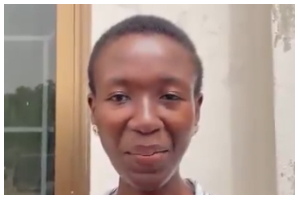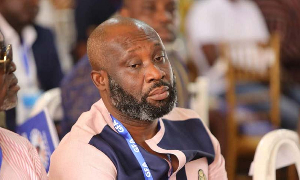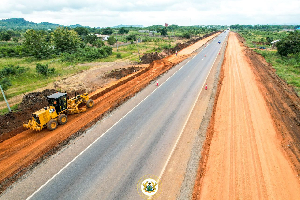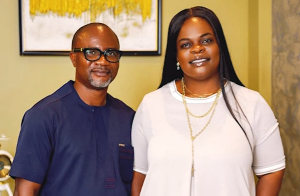The effects of Child Trafficking and child labour are more devastating than a double-edged sword. Ghana seems to provide a conducive socio-economic environment that nurses and nurtures this phenomenon beyond the control of the stakeholders involved in remedying the problem. The ‘child grasping’ ferries and canoes on our water bodies (ever ready to have on board children for any reason) and the vehicles that ply between the inland boarders and the coast contribute to this problem that affects our future leaders.
Trafficking is not the same as migration or traveling. Within Ghana, persons are not inhibited from migrating for any reason. Children sometimes travel to visit their relations, or migrate to live with relatives outside their hometowns. A responsible parent or guardian would ensure that his or her child travels within the company of a grown up. This is allowed by culture and law. When the same child is transported from one place to another by another person – be the person a relative, parent, friend or stranger – and the child ends up being exploited or abused, migration then turns into trafficking which is an offense under Act 694. In the guise of migration, some children have been transported to various destinations where they have been put to work and deprived of education, good care and sound growth and development. This act will eventually tell on the quality of human resource of the family, community and the nation as a whole in future. It is this effect that makes this act human trafficking – an offense against the state and an illegality.
Most of these boys and girls who are trafficked or transported to various parts of the Volta Lake are abused in several ways and used in various forms of what can be termed as worst forms of child labour. Other children that are found on a number of small-scale mining sites located at different places in the country do sit on deadly time bombs - this is evidenced by the recent disaster at Dunkwa-on-Offin where a mining pit caved in on some people including boys and girls whose bodies are yet to be discovered. Other children are trafficked into domestic servitude, commercial sexual exploitation, stone quarry and other areas. The case of the children, mostly girls, who migrate or are trafficked from the North to the South of the country has even gained international repute, contributing to the development of the latest word added to the BBC English Dictionary Edition - ‘kayaye’ – which is now a standard word originating from Ghana. It is noteworthy that other such Ghanaian words that have been accepted as standard words worldwide are “kwashiorkor” and “beriberi”, both being diseases of malnourishment of children.
Child trafficking has been a serious concern to the government, the media and several civil society organizations today. Some individuals and groups use clandestine means to promote and perpetuate this obnoxious trade, especially on the Volta Lake, out of greed. Unfortunately, the phenomenon still appears as “normal”, “acceptable” and “traditional” to many people in this country. The recent pronouncement by people in authority on the transportation of over 200 children from Ada to Yeji purportedly to assist their parents should be given close scrutiny. It is quite incredulous that over 200 children could just wake up one morning and, without any consultation among themselves or with any person in authority, set off to a common destination to “help” their parents to mobilize money to pay their fees (even though education at the basic level is free). This leads to conjecturing that there was something more to this incident than what is being said; and this points strongly at the possibility of this being a case of child trafficking.
A few questions arise from this incident. If children commonly travel to Yeji to help their parents, how many of such children return to where they came from after the holidays? Do the activities of these children in Yeji and other destinations constitute child labour as defined in Section 91 of the Children’s Act of 1998? Does anyone monitor the activities of these migrant children? How many of them are physically and sexually abused? How many of them get injured or die in the process of “helping” their parents/guardians due to the hazardous nature of the work they are engaged in? Do we have an idea whether any of these children end up becoming modern-day slaves, never returning to their real homes and real parents, cry most times, get abused and maltreated their entire lives?
Children traveling to visit their parents and family is normal, but if these children are on their way to be subject to hazardous activities which has the potential of negatively affecting their education, growth and total development, this would be in conflicts with our laws and is unacceptable.
Several efforts are being made by the government, the Anti-Human Trafficking Unit of the Ghana Police Service and several non-governmental organizations such as the Ghana Anti-Human Trafficking and Child Protection Coalition to stem the tide of human trafficking in the country. The Coalition, which met its entire members to critically discuss this issue, is committed to working with various stakeholders, especially the government, and indicates its preparedness to support the protection of children in Ghana. The coalition believes that children have rights and must be allowed to enjoy those rights in full without any hindrances. Through the responsible exercise of their rights, we can effectively groom the human resource of our nation, for the children of today to become the real leaders of the future.
The concept of children helping their parents or guardians after school, during weekends and during vacation has been the Ghanaian custom for many years. It is acceptable as a means of grooming children into responsible adulthood. However, transporting as many as nearly 300 children between 5 to 17 years of age to be involved in fishing in Yeji under the pretence of helping their parents is quite suspicious and may not be in the best interest of the child.
The Coalition believes that child trafficking and worst forms of child labor must be the concern of all – everyone one must contribute to finding a lasting solution to this problem. One key area that needs immense focus is monitoring of movement of all persons within and into the country. Migration does not need to be restricted. However, it is very important that every community understand the dangers and dimensions of trafficking in persons, worst forms of child labour, lack of education and adequate care for children, and the future that these present to the community and the nation. Our own parliament enacted the Children’s Act, the Human Trafficking Act and other laws that prohibit child labour and human trafficking. It is, therefore, our collective responsibility to study the processes of human trafficking, worst forms of child labour, and modern-day slavery and work towards sustainable solution. We need public education on these acts and on-going activities in respect of these laws. The Ghana Anti-Human Trafficking and Child Protection Coalition calls on all persons to stand up to protect children from trafficking, abuse, exploitation and modern-day slavery, and thereby uphold and defend the good name of Ghana.
Ghana Anti-Human Trafficking and Child Protection Coalition
Contact Person Delle Kpebesaan
kpebesaan_delle@hotmail.com
Opinions of Thursday, 19 August 2010
Columnist: Kpebesaan, Delle














